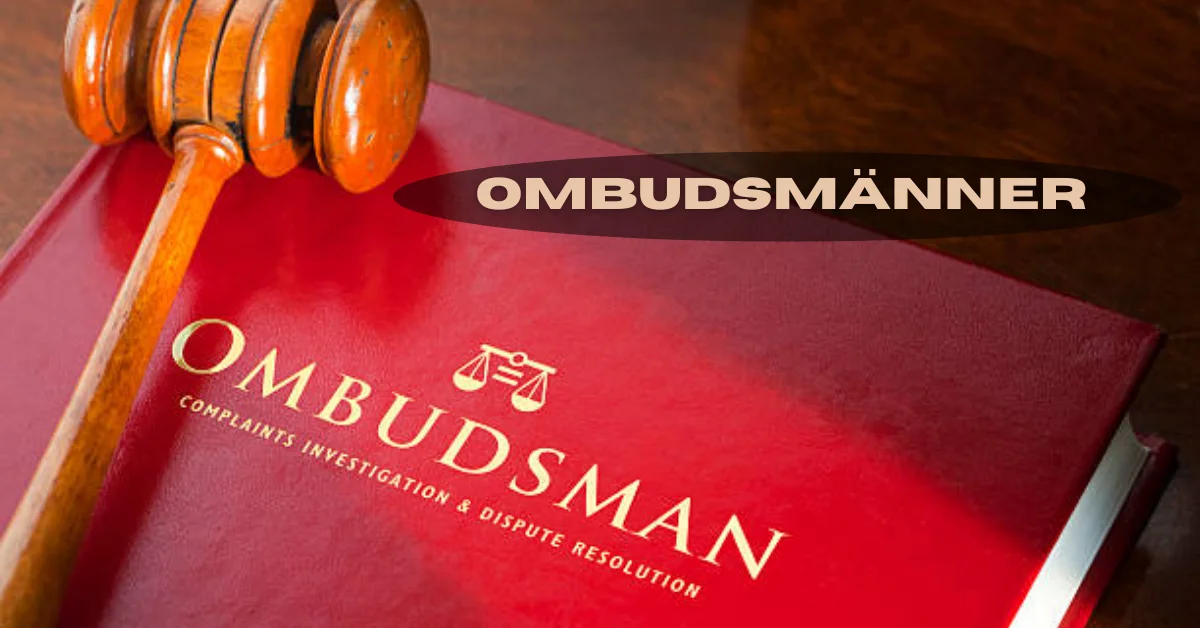Introduction: What Does “Ombudsmänner” Mean?
The word “ombudsmänner” may sound unfamiliar to some, but it holds a powerful place in various institutional, legal, and social structures—especially within German-speaking countries. It is the plural form of “Ombudsmann”, which translates to ombudsman in English. An ombudsman is an individual appointed to investigate complaints made by individuals against organizations, especially public authorities or large institutions.
In German, “ombudsmänner” refers specifically to multiple male ombudsmen or, in certain contexts, to a group of ombudspeople.
This article will explore the meaning, importance, role, and modern-day usage of ombudsmänner, with a deep dive into their function in society and governance.
The Origin and Evolution of the Ombudsman Concept
The idea of an ombudsman originates from Sweden in the early 19th century. The role was created as a neutral party tasked with overseeing government conduct and helping citizens resolve issues with state bureaucracy. As this concept gained traction, it spread across the world, including into German-speaking nations, where it was adapted into local governance systems.
In German, the singular form is Ombudsmann, and the plural becomes Ombudsmänner, constructed from standard German masculine pluralization patterns.
Role of Ombudsmänner in Society
Ombudsmänner play a vital role in maintaining fairness, accountability, and transparency in public and private sectors. Their job includes:
- Investigating complaints from the public
- Mediating conflicts between individuals and institutions
- Monitoring the fairness of procedures and decision-making
- Recommending policy improvements based on findings
- Educating people about their rights
They are often appointed to specific sectors, such as healthcare, banking, education, or media, depending on the country’s structure.
Why Multiple Ombudsmänner Are Sometimes Necessary
In complex institutions or government systems, one ombudsman cannot handle every complaint or dispute. That’s why multiple ombudsmänner are appointed. This distribution allows for:
- Specialization: Each ombudsman may handle a different sector or category.
- Efficiency: Workloads are divided, leading to quicker resolutions.
- Accessibility: More ombudsmänner mean better geographic or demographic representation.
- Diversity of Perspective: Different ombudsmänner may bring varied insights to their roles.
Real-World Application: Where Ombudsmänner Operate
Government Agencies
Government ombudsmänner work within national or regional governments to review actions taken by agencies, respond to citizen complaints, and ensure bureaucratic fairness.
Corporations and Banks
Many large organizations employ internal ombudsmänner to handle employee grievances or customer concerns. In the financial world, ombudsmänner serve to mediate disputes between customers and banks.
Universities and Schools
Educational institutions sometimes appoint ombudsmänner to support students and faculty who face difficulties with academic policies, discrimination, or administrative errors.
Health Systems
Medical ombudsmänner review patient complaints, investigate mistreatment, and advocate for improved patient care systems.
Legal Standing and Authority of Ombudsmänner
In most cases, ombudsmänner do not have binding legal power. They can investigate, recommend, and report—but not enforce. However, their influence often prompts significant changes, as organizations value their feedback and want to maintain a trustworthy public image.
Some countries, however, have legislatively empowered ombudsmänner whose recommendations carry legal consequences or trigger formal reviews.
Qualities and Skills Needed in Ombudsmänner
To function effectively, ombudsmänner must exhibit:
- Impartiality: No bias or preconceived opinion
- Strong listening skills: Understanding both sides of a conflict
- Problem-solving mindset: Finding fair solutions
- Legal or regulatory knowledge: Understanding rules and processes
- Communication ability: Explaining complex outcomes clearly
Their goal is to restore trust in institutions, protect the public, and improve systemic operations.
Ombudsmänner vs. Ombudsfrauen: Gender Language in Context
In German, the masculine form “Ombudsmann” becomes “Ombudsmänner” in plural. The female counterpart is “Ombudsfrau”, and the plural is “Ombudsfrauen”. To promote gender neutrality, some institutions prefer terms like “Ombudspersonen” or “Ombudsstellen” (ombudsman offices).
Still, “ombudsmänner” remains in official use where the roleholders are male or where traditional grammar applies.
Common Issues Handled by Ombudsmänner
Depending on their area of focus, ombudsmänner deal with a wide variety of issues, including:
- Delayed government services
- Unfair treatment in the workplace
- Unjust financial charges
- Access to healthcare concerns
- Denial of academic rights
- Consumer fraud
They act as intermediaries, ensuring that complaints are reviewed without prejudice and that solutions are proposed fairly.
The Process: How Complaints Are Handled
While each office may differ slightly, a general ombuds process involves:
- Receiving a complaint – Often via written form, email, or in person
- Initial assessment – To determine whether the issue falls within the ombudsman’s remit
- Investigation – Gathering facts from both parties
- Analysis – Evaluating the fairness and legality of actions taken
- Resolution – Proposing recommendations, mediating discussion, or issuing a report
Transparency and Confidentiality
An important feature of the work ombudsmänner do is maintaining confidentiality while promoting transparency in broader systems. While individual cases may be handled discreetly, trends and systemic issues often become the subject of public reports.
Challenges Faced by Ombudsmänner
Despite their role in fairness, ombudsmänner face several hurdles:
- Lack of enforcement power
- Limited resources or staff
- Resistance from powerful institutions
- Public unawareness of their function
Raising awareness about the work ombudsmänner do is critical for strengthening their impact and legitimacy.
Future of Ombudsmänner in a Digital World
As society becomes more digitally connected, so do the operations of ombudsmänner. Many are now utilizing online complaint systems, virtual mediation, and data analysis tools to:
- Track common patterns
- Expand access to remote communities
- Improve resolution times
- Protect digital rights
In areas like cybercrime, data privacy, and AI ethics, ombudsmänner are finding new responsibilities.
The Ongoing Relevance of Ombudsmänner
Though rooted in historical governance systems, the role of ombudsmänner continues to evolve and remain essential. In an age where transparency, accountability, and trust are often in question, these figures offer an accessible and fair path to resolution.
Whether operating in schools, government halls, or healthcare systems, ombudsmänner represent a bridge between the public and the powerful, ensuring voices are heard and justice is pursued—even without force.

